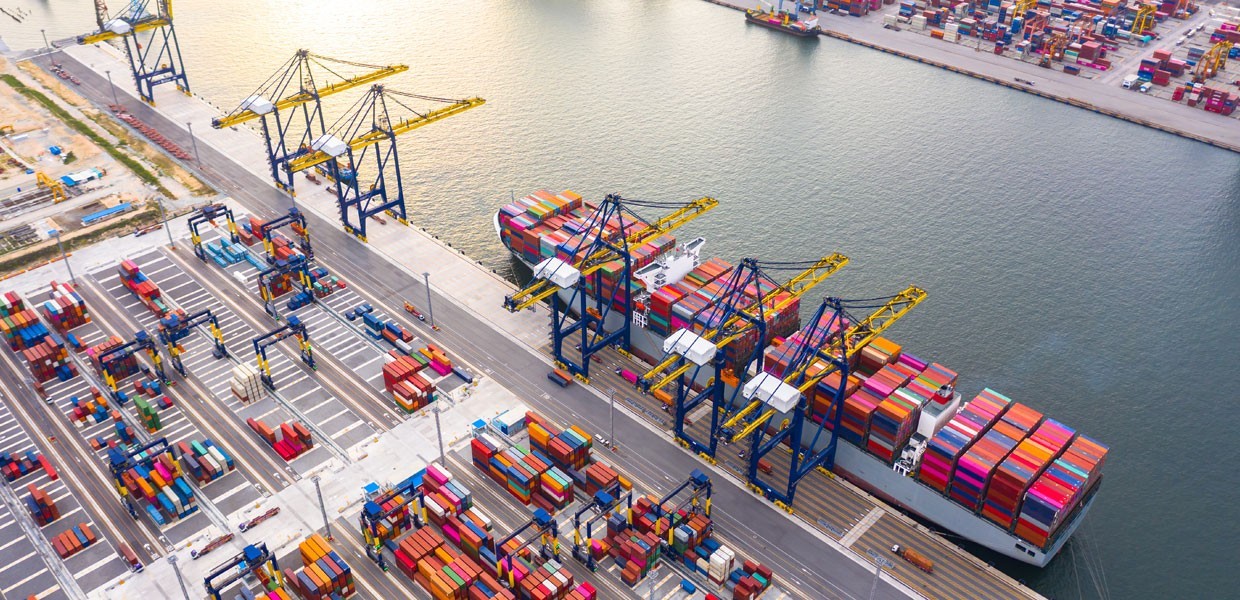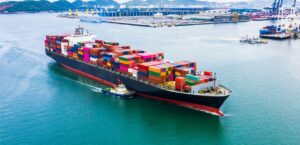As we look ahead in anticipation of a 2021 that will – hopefully – look more ‘normal’, many industries are still apprehensive, maybe even pessimistic, about their business prospects. Despite the obvious relief and excitement that comes with multiple working vaccines, businesses are still facing chaotic, challenging and uncertain times across the globe as a result of Covid-19.
The global shipping and sea freight industries are facing these challenges too, as well as trying to keep up with changing technological, environmental and regulatory expectations. From big data to climate change, there are a variety of economic, environmental and political conditions that will impact the sea freight forwarding industry.
As with any business operating during the pandemic, expectations and predictions for the success of sea freight shipping in 2021 will depend on the rate of Covid-19 infections and vaccinations. The entire shipping industry was hit hard by the global pandemic. However, compared to a variety of sectors, international shipping has managed to maintain a strong demand for their services.
The sea freight industry has been combating the impact of more than just the pandemic. At the forefront, combating the impacts of climate change and establishing a reliable, global ‘green shipping’ trade network. From individual companies and nations to international organisations and governments, there are regulatory actions and funding programmes that will force the entire industry towards a greener future that will benefit all of these stakeholders and the planet.
The IMO and UN Environment Programme are hosting a Maritime Zero– and Low-Emission Innovation Forum which will consider the key innovations and R&D opportunities within sea freight shipping. The goal of the Forum is to rapidly establish regulations and development goals that accelerate the maritime industry’s transition to a carbon neutrality. The Forum is expected to adopt climate-focused amendments to reduce the carbon emissions of international shipping by at least 40% by 2030.
Many sea freight companies are concerned about the investment requirements that come along with changing vessel types and specifications. The impact of climate change is unquestionable and so is the impact of the regulations that combat it. As exciting as the prospect of a ‘green’ shipping industry is, we must remain cognisant of the magnitude of this evolution and give it the time it needs.
Whatever happens between now and 2030, we can be sure that the decarbonisation of shipping will have an industrywide influence on sea freight forwarding and a global impact in the fight against climate change. There will also be interesting benefits that come with greening the industry. Environmental regulation will cause ebbs and flows in the nature of risk that comes with investing into shipping. However, a technologically– and digitally-evolving sea freight industry could turn out to be the biggest change of them all.
Digitalisation remains a top priority for shipping organisations across the globe continuing into 2021. The process of digitalisation is influencing a variety of outcomes for sea freight forwarders. This includes a rise in new technologies, reducing operational costs, improving operational efficiency and staying up to date with compliance on the latest regulation and certification requirements. Not to mention the benefits of improving vessel safety and offering better value to customers.
Unfortunately, digitalisation has created some of its own challenges to the shipping industry that could make business owners apprehensive towards this digital revolution. Some of the concerns being raised are lacking or little evidence of value for money, increased cyber-security risk, bandwidth capability and cost issues, as well as the obvious difficulty of training offshore staff.
Fortunately, it is expected to become more provable and dependable as more sea freight forwarders digitalise, proving that these new technologies and practices entering the field are expanding shipping capabilities.
The wellbeing of offshore workers needs to remain a top priority for sea freight shipping companies. The coronavirus has caused concern about the access to home for many working on these ships and the risk of onboard viral transmission. Offshore worker exploitation is not a new issue and requires serious attention.
Economic and political regulation, as well as health and environmental targets, the industry and those who oversee it have all expressed their desire for change and the need for improvement. We anticipate a greater push for the rights and wellbeing of offshore workers, through all possible means: new technologies, regulations, health and safety, access to services and better labour practices, etc.
It is a difficult time for everyone and in every sector, but the sea freight industry knows what changes are possible as well as what to expect for the industry in 2021. The rebuilding of the industry’s growth potential and opening better dialogue with customers during the pandemic will be made easier through digitalisation and ’greening’ the industry. Finding the best and most effective solutions will, as always, require forward thinking and anticipating what the future will hold.
For reliable and accessible sea freight forwarding at scale, contact M6T at your nearest branch (Johannesburg or Durban) and benefit from sea freight shipping today.



